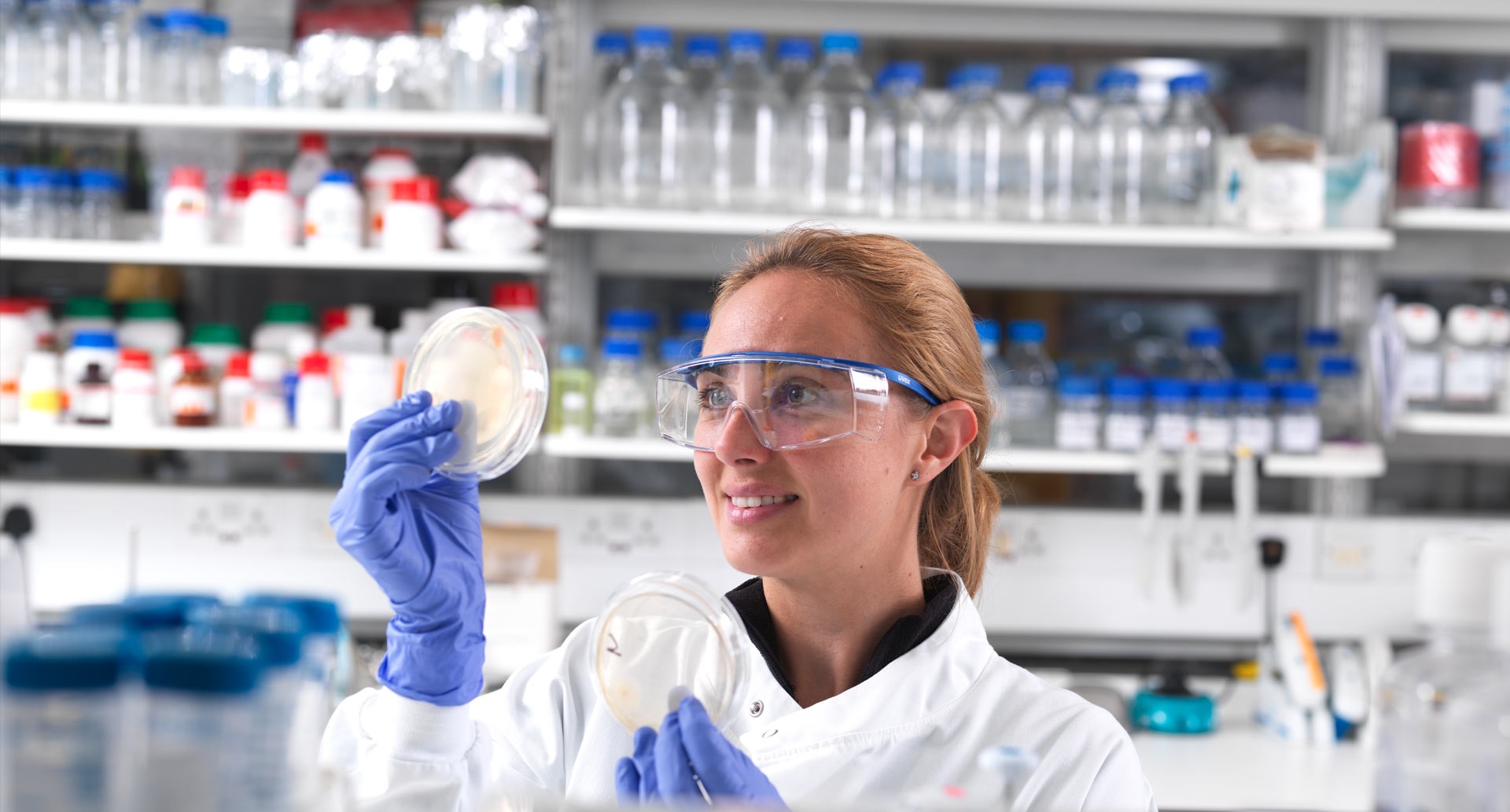
Opportunity: antibody-derived small molecules and ‘macrodrug’ degraders
Professor Terence Rabbitts
ICR lead scientists/inventors:
Professor Terence Rabbitts
Opportunity at a glance
The Institute of Cancer Research, London, is seeking licensees for a portfolio of assets that target hard-to-treat oncology driving proteins LMO2 and RAS. Using an innovative antibody fragment technique as a drug screening tool, the lab has identified a range of potent anti-cancer compounds targeted against both proteins. Some of these compounds are small molecules; some are intracellular antibody fragments, further developed with the addition of warheads to create ‘macrodrug’ protein degraders. These are claimed in a range of patent families, many of which are granted in key territories. We are seeking to partner with drug development / delivery partners to further develop these assets.
About the programmes
The ICR is seeking partners for three separate commercial opportunities. 1. To further develop a set of ‘macrodrugs’, which target LMO2 or RAS for degradation; the Rabbitts lab engineers chimaeric intracellular antibodies where the antibody domain is directly fused to an E3 ligase enzyme. 2. To further develop a set of small molecules targeting LMO2 to ‘hit to lead’ stage, some of which are being developed into PROTACs. 3. To further develop a set of small molecules targeting RAS, to increase potency and move to ‘hit to lead’ stage.
Lead inventors
Professor Terence Rabbits’ laboratory focuses on developing technologies using intracellular antibody fragments and small molecule derivatives, mainly aimed at targeting chromosomal translocation protein products products and other hard-to-drug proteins. His research includes targeting protein function inside cells, particularly protein-protein interactions, using antibody fragments with novel warheads; and enabling drug delivery into cancer cells using lipid nanoparticles. Professor Rabbitts is also an experienced entrepreneur. He co-founded Orbit Discovery and Quadrucept Bio Ltd, acts as adviser to other companies, and was chairman of the scientific advisory boards of Cambridge Antibody Technology until its stock market launch, and Kymab until its acquisition by Sanofi.
Our excellence in drug discovery
The Institute of Cancer Research (ICR) runs one of the world’s leading academic cancer drug discovery programmes. Since 2005, researchers based in its Centre for Cancer Drug Discovery have discovered 21 clinical candidates, of which 13 have been progressed to clinical evaluation.
Our drug abiraterone (Zytiga) has also been approved in the US, Canada and Europe for late-stage prostate cancer and has benefited hundreds of thousands of patients across the world. In 2024 the Food and Drug Administration (FDA) approved breast cancer drug capivasertib (now branded Truqap), which was discovered by AstraZeneca following a long-running collaborative research programme including the ICR and Astex Pharmaceuticals. The Centre for Cancer Drug Discovery – based in a new state-of-the-art £75m building in Sutton, south London – comprises 160 staff dedicated to the discovery and development of novel therapeutics for the treatment of cancer.
The Centre for Cancer Drug Discovery:
• has expertise and resources in every stage in drug discovery, including target validation, compound screening, hit discovery, assay development, lead optimisation and preclinical development
• is integrated with the Drug Development Unit, a world-leading phase I cancer clinical trials unit run jointly between the ICR and our partner hospital The Royal Marsden
• collaborates with industry partners at every stage in drug discovery and development • works closely with scientists in our Divisions of Cancer Biology and Structural Biology, who contribute to innovation by gaining new insights into cancer biology and identifying novel targets. The ICR is the UK’s leading academic centre in biological sciences^.
Contact
Jenny Worthington
PhD Business Development Manager
Email: jworthington@icr.ac.uk
Tel+44 20 3437 6607
^ REF 2021: UK Government assessment of university research quality